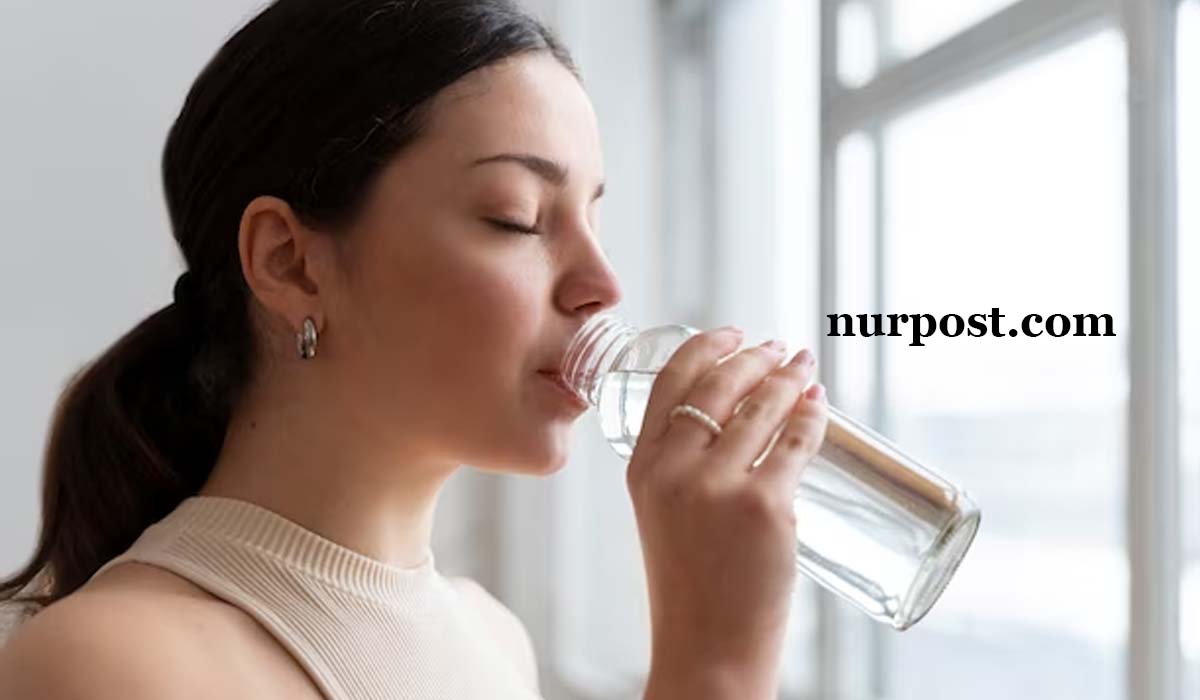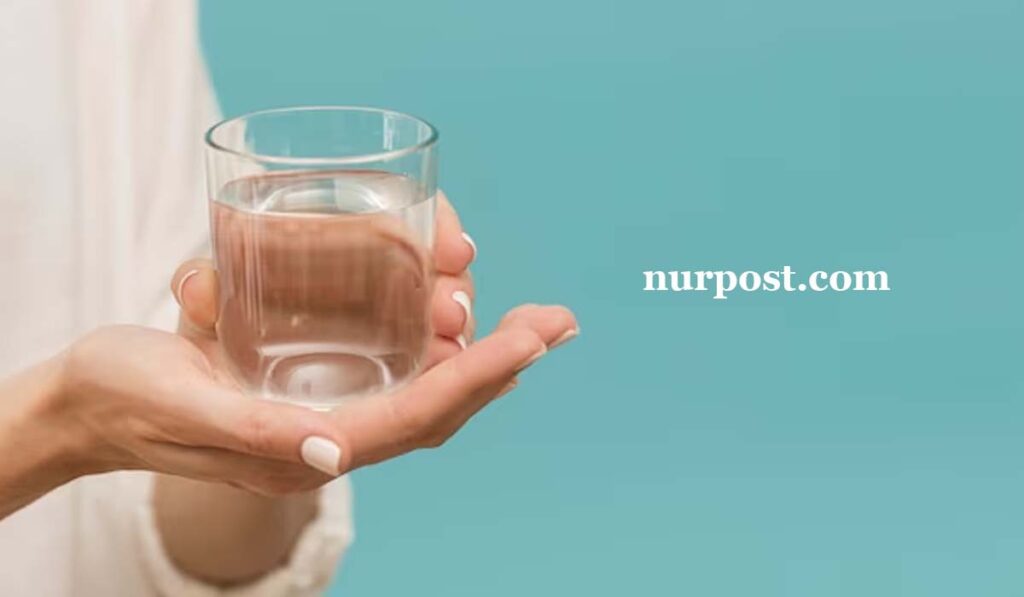Reasons You Are Drinking Water the Wrong Way is essential for our overall health and well-being. It plays a crucial role in maintaining bodily functions, regulating body temperature, and keeping our organs healthy.
Reasons You Are Drinking Water the Wrong Way
However, despite its importance, many people are unknowingly drinking water the wrong way. In this article, we will explore some common mistakes people make when it comes to drinking water and why it’s important to correct them.
Gulping down water quickly
One of the most common mistakes people make is drinking water too quickly. Gulping down water may seem harmless, but it can actually lead to inefficient hydration.
When we drink water too fast, our body doesn’t have enough time to absorb it properly, resulting in frequent trips to the bathroom without fully reaping the benefits of hydration.
To drink water the right way, take small sips and allow your body to absorb it gradually.
Ignoring hydration cues
Our body sends signals when it needs water, such as thirst or dry mouth. However, many people tend to ignore these cues and forget to drink enough water throughout the day.
By the time you feel thirsty, you may already be mildly dehydrated.
To avoid this, it’s important to pay attention to your body’s signals and drink water regularly, even if you don’t feel thirsty.
Not drinking enough water
Inadequate water intake is a common problem that can have negative effects on our health. Many people simply do not drink enough water to meet their body’s hydration needs.
Factors like climate, physical activity, and overall health determine how much water an individual should consume daily.
As a general guideline, aim to drink at least eight glasses (64 ounces) of water per day. However, individual requirements may vary, so it’s important to listen to your body’s needs.
Reasons You Are Drinking Water the Wrong Way
Drinking water is a basic yet essential aspect of maintaining a healthy lifestyle. By being mindful of how we consume water, we can maximize its benefits and support our overall well-being.
Relying too much on other beverages
While other beverages like tea, coffee, and juice can contribute to overall hydration, they should not be the primary source of your daily water intake.
Many of these beverages contain additives, caffeine, and sugar, which can have dehydrating effects on the body.
Make it a habit to prioritize plain water as your main source of hydration and consume other beverages in moderation.
Consuming water at improper temperatures
The temperature of the water you drink can also impact your overall hydration.
Very cold water can shock your system and hinder digestion, while hot water can cause discomfort and potentially damage your esophagus.
It is best to consume water at a lukewarm or room temperature to allow for optimal absorption and avoid any adverse effects.
Neglecting water quality
The quality of the water you consume is crucial for your health. Many people unknowingly drink water that may contain contaminants or impurities.
Tap water, for example, can contain chemicals, heavy metals, and bacteria, depending on its source and treatment.
It is advisable to ensure that the water you drink is filtered, whether through a home filtration system or by using a trusted source of bottled water.
Reasons You Are Drinking Water the Wrong Way
Water is a fundamental necessity for our bodies, and proper hydration is crucial for maintaining optimal health.
However, many individuals unknowingly make mistakes when it comes to drinking water.
In this article, we will delve deeper into additional reasons why you may be drinking water the wrong way and provide tips on how to improve your water consumption habits.
Timing your water intake
Timing plays a vital role in maximizing the benefits of water consumption.
Some people make the mistake of drinking water immediately before or after a meal.

While it’s important to stay hydrated throughout the day, consuming large quantities of water during meals can dilute stomach acid and hinder the digestion process.
It’s recommended to drink water 30 minutes before or after a meal to maintain the integrity of your digestive system.
Neglecting consistent hydration
Many individuals forget to maintain a consistent water intake throughout the day, resulting in sporadic hydration.
A common mistake is relying on a single large glass of water in the morning and then neglecting hydration for the rest of the day.
To rectify this, establish a routine of sipping water at regular intervals to keep yourself consistently hydrated. Set reminders or carry a water bottle to help you stay on track.
Ignoring hydration during physical activity
During exercise or any strenuous physical activity, your body loses water through sweat, and it’s crucial to replenish it adequately.
Failing to drink enough water during workouts can lead to dehydration, muscle cramps, and decreased performance.
Make it a habit to drink water before, during, and after exercise to maintain proper hydration levels and support your body’s functions.
Reasons You Are Drinking Water the Wrong Way
Avoid gulping down water, listen to your body’s cues, drink enough water throughout the day.
Prioritize plain water over other beverages, consume water at the right temperature, and ensure the quality of the water you drink.
These simple adjustments to your water-drinking habits can go a long way in promoting good health and hydration. Remember, staying properly hydrated is key to feeling your best.
Overlooking electrolyte balance
While water is essential, solely focusing on water consumption without considering electrolyte balance can lead to imbalances in the body.
Electrolytes, such as sodium, potassium, and magnesium, play a vital role in maintaining fluid balance and muscle function.
To optimize hydration, consider incorporating electrolyte-rich foods or drinks into your routine, especially during periods of intense physical activity or when you are sweating excessively.
Disregarding individual hydration needs
The recommended daily water intake of eight glasses (64 ounces) is a general guideline.
But individual hydration needs can vary based on factors such as body weight, activity level, climate, and overall health. Some people may require more water to stay properly hydrated.
Pay attention to your body’s signals and adjust your water intake accordingly. If you engage in vigorous physical activity.
Live in a hot climate, or have specific health conditions, consult with a healthcare professional to determine the right amount of water for you.
Using thirst as the only hydration indicator
Relying solely on thirst as an indicator of hydration can be misleading. Thirst is the body’s way of signaling mild dehydration, and by the time you feel thirsty.
You may already be partially dehydrated. Rather than waiting for thirst to strike, make a conscious effort to drink water regularly throughout the day to maintain optimal hydration levels.
Conclusion
Proper hydration is vital for our overall well-being, and avoiding common mistakes in water consumption is key to reaping its benefits.
Remember to time your water intake wisely, maintain consistent hydration, prioritize water during physical activity, consider electrolyte balance, customize your water intake to individual needs.
Don’t solely rely on thirst as an indicator. By making these adjustments to your water-drinking habits, you can enhance your overall health and well-being while harnessing the true power of water for your body. Stay hydrated, stay healthy!
